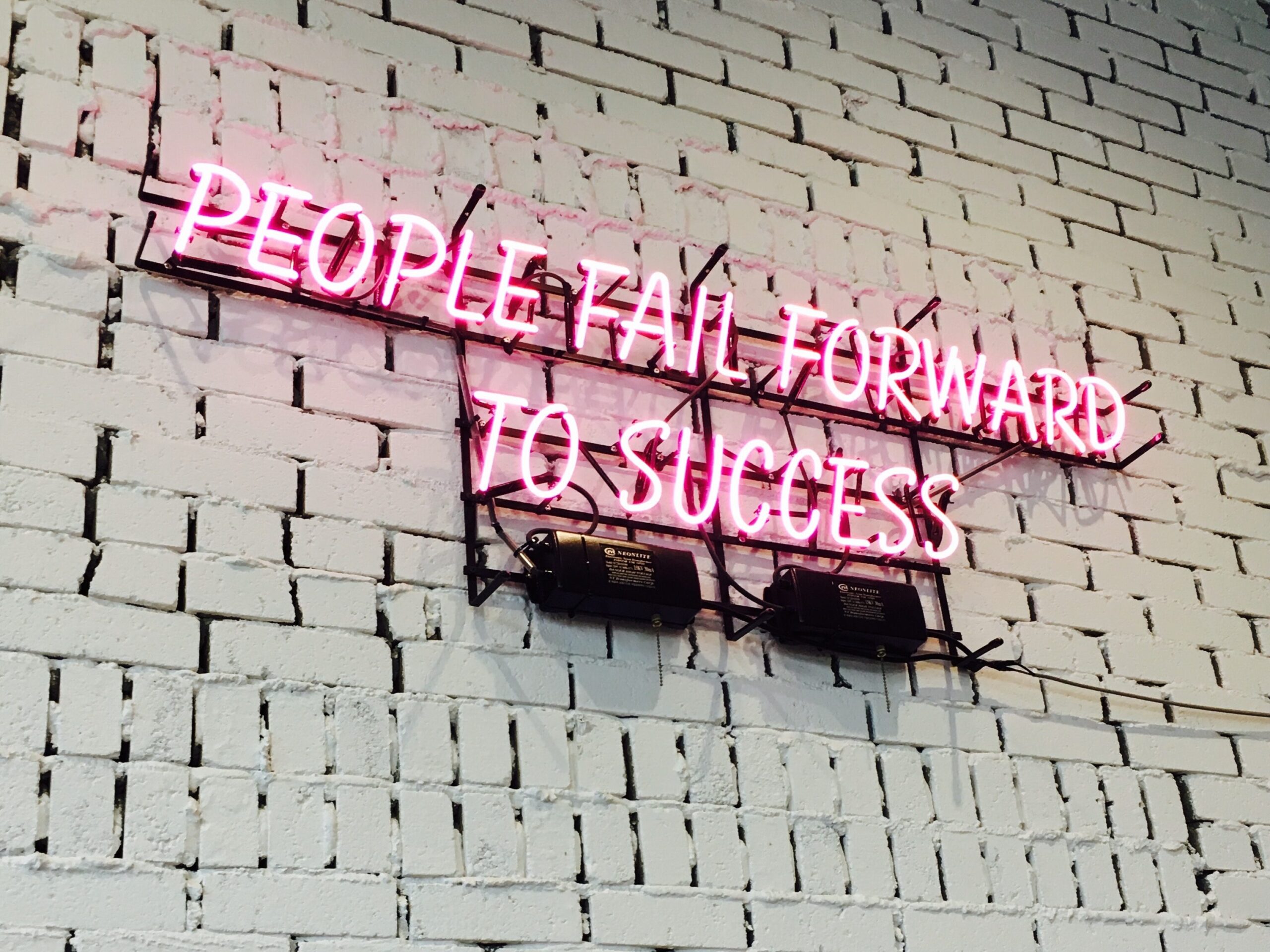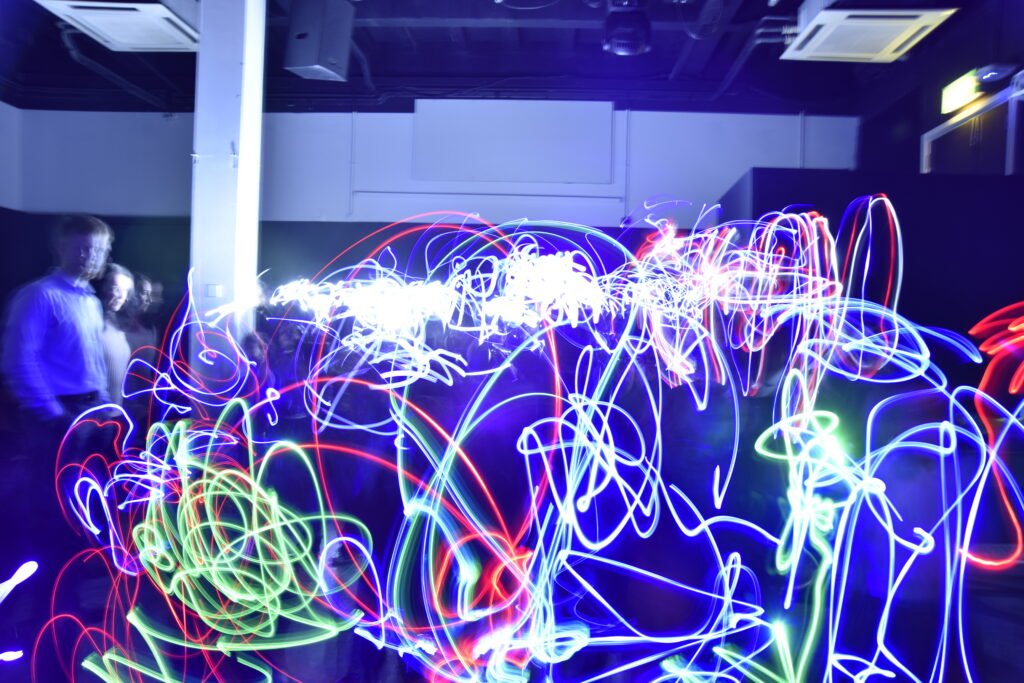
How do you feel about failing?
No really, say it out loud, voice record your answer, make a note of what you think. Tell someone else what you feel about the idea of failure…
fail. feɪl/. verb.
To be unsuccessful in achieving one’s goal.
Or/
To neglect to do something
“Failure sucks. Failure comes before resilience. Failure is a temporary disruptor. What will your failure encourage you to try?”
– Sonya Barlow, Founder of Like Minded Females
Sonya talks about being temporarily disrupted…. well…what disrupts the norm? Have you ever tried playing with things, approaching stuff playfully or adding play into your life, even the serious sections?
Whats the connection between Confidence and Failure?
“Failure to prepare is to prepare to fail. Nine times out of ten, what you perceive to be someone else’s ‘natural confidence’ is most likely diligent preparation. The good news is that anyone can do the work to be well-prepared and appear confident. It can have a transformative effect personally as it can stop you from feeling out of your depth in typically un-nerving situations like negotiations and networking.”
Alec Dudson, intern Magazine founder

Read: Essential tips to help you to build
<undefined>Dudson</undefined>
Your confidence can impact many aspects of your career, but have you ever considered the way it affects what you charge for your creative work? Here, Alec Dudson, founder and editor-in-chief of Intern, shares his tips for building your creative confidence, to make sure you get paid what you’re really worth.
The fear of failing can in turn stop us from trying, right? It can be easier to NOT put ourselves ‘out there’ in order to prevent ourselves from messing things up, failing at something, breaking a thing, ruining an experience etc etc…. AND we often feel we need to feel confident in an area, in a skill, in our knowledge, to be able to do well or succeed. So confidence and fear of failure are intrinsically linked. For some of us.
How can we subvert failing, and challenge the fear of failure?

Through playing, decisions and trying things out can be made explored without the fear of failure.
By playing with ideas, through being curious, by the process of testing things out in safe and non judgemental space, when an outcome is not measured or defined by right and wrong, when an experience is playfully approached, there is the possibility that something really exciting what might happen.
And where our worry of it all going wrong, of it failing, can be let go of (or held lightly) in the knowledge that this is risk free, an opportunity to learn, playful.
We literally have to fail to learn, and when we learn from things not going to plan, we truly learn. We deeply learn, and we enact change from this learning. To try something, is brave. To fail from things, is brave. To be brave is scary. So how can we approach scary things? With confidence! Easy!
hhmmm, what if we dont feel confident? Well, I believe that self reflection and methods for acknowledging skills, applying your learning from past actions into future aspirations, and beginning to try ideas out, in real life, is both BRAVE and WONDERFUL!
If you can give yourself the space to recognise your competencies, and give yourself the space to try things out, with failure being an option, but you acknowledge that you will always reflect on action and take your learnings into the future, you go for it! FAIL everyday! Because this is true learning… giving yourself the permission to try is brave, and learning from mistakes is brave.

Apply Your Thinking:
Take a look at the Play Philosophy’s founder Rachel Walker talk about doodling for reflection, and consider how a creative and playful approach to thinking through reflective thoughts and processes, can help you realise your competencies and your skills.
Read this BLOG ARTICLE and have a go at using playful approaches to reflect on your experiences and feelings. Doodling can be useful tool!
How To Doodle Your Self Reflections
Self-reflection provides a great opportunity for us to pause, celebrate ourselves, understand what we’ve learned and how we’ve changed, and inform our future direction. Especially at a point where our direction has been shaken, for example we feel like we have failed at something.
So, as I’m about to start a new chapter in my career, going back into employment and making The Play Philosophy my passion project, it felt fitting to take a moment to reflect on what I’ve learned the last two years.
I chose to Doodle my reflections for a few reasons:
- It’s fun!
We know that self-reflection is good for us, but in the busy day-to-day it can be hard to sit down and ask ourselves ‘what have I learned?’. By making it fun, we’re more likely to do it.
- It encourages flow.
With so many other distractions, self-reflection can easily become a superficial tick box exercise. Drawing and expressing ourselves visually is more likely to promote a state of flow, where we reflect in a state of deep thinking that has our full attention.
- It helps us to see new possibilities for the future.
Me saying that I know I need my sparkly rubber ring and some flippers on to propel myself to the peak of the waterslide, may mean nothing to you. But it means something very specific to me and has helped me to conceptualise what I have learned about myself in an entirely new way.
Let’s get to the fun doodley part. (Use a piece of paper or multiple sheets, the bigger the better )







